Beat Spacek on making new album Modern Streets using iOS apps
"If you think apps are toys, then you're not a real musician."
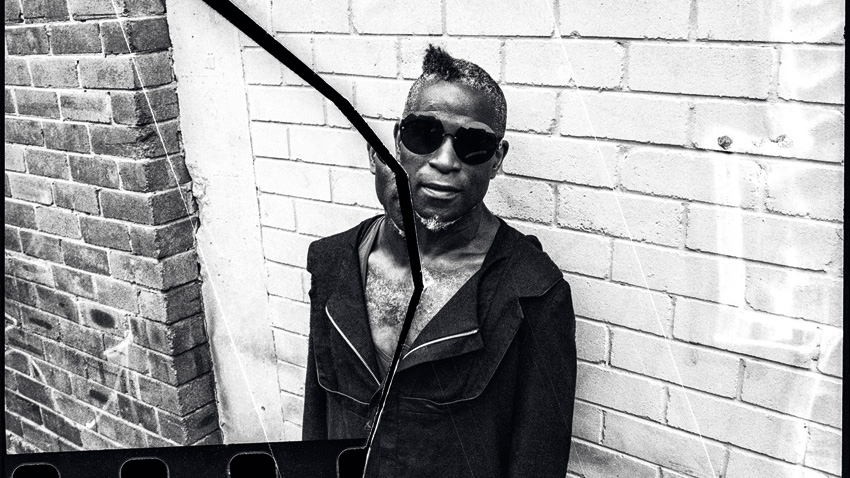
South London-born producer and vocalist Steve Spacek has been fusing downbeat soul and future-tronic beats for well over 20 years now. His latest album, Modern Streets, his first for the ever-adventurous Ninja Tune label, is no exception, but what is different is the way he recorded and wrote all of these 13 songs: on iPhone and iPad.
"It wasn't planned that way," explains Spacek, now living a stone's throw from Bondi Beach in Sydney. "It just sort of happened and somehow felt right. On my last album [2005's Space Shift], I recorded quite a few of the vocals using the built-in mic on my laptop. Modern Streets was an extension of that, er… mindset. I'm in an airport, I've got my phone, there's an idea for a vocal, and bang, it's there.
"So often, the recording process gets cluttered up with opinions, options, gear, trying to work out how to create the perfect vocal chain and all that kind of shit. This time, I stripped all that away. It's just me, the idea and an app!"
From Brockley to Bondi Beach! How did that happen?
"It's all down to my missus. She's from Sydney. When we had our first kid, it made sense to be near her family. We had a look at a few places, I saw the beach and… [laughs] No disrespect to London or anything, but it was a bit of a no-brainer, really.
"Musically, I think London's always there, though. Always an influence and inspiration. I grew up surrounded by some of the most famous sound systems in the world. Saxon Sound was based just a couple of streets away, there was Sir Lloyd and Jah Shaka. On top of that, you've got the sound of London gospel. My mum took me to church every week, and I remember this dude called Brother Gordon, who used to play electric guitar. I used to watch him and think, 'Wow, he's making music! I can see him making music!'
"You cannot underestimate the influence that dub and reggae has had on the whole club and electronic scene in the UK. Think about it - whenever we hear something like house or garage, we flip it. We slow it down, we shift the snare or we add a reggae bassline. As a kid, I was in the middle of all that. It was bound to have an effect."
Get the MusicRadar Newsletter
Want all the hottest music and gear news, reviews, deals, features and more, direct to your inbox? Sign up here.
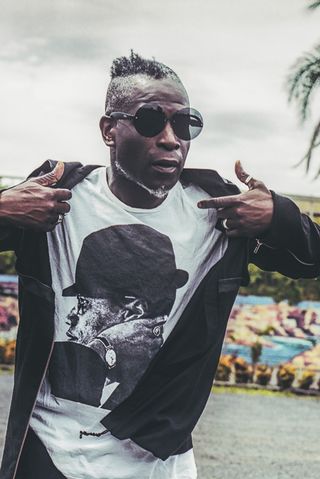
When it came to making music, did you have any idea of what you wanted it to sound like?
"Didn't have a clue. When you're a kid, you just soak up everything, don't you? I remember hearing Funkadelic, Marvin Gaye and - this was a big one! - Donna Summer's I Feel Love. I didn't understand this music, but I knew it felt good. The soul, the funk, the reggae, the groove, and some sort of electronic weirdness going on over the top.
"I was big into the London jazz funk scene back in the day, and I remember hearing a phone interview with a band called Central Line on Capital Radio. This guy was talking about a drum machine. What the fuck is a drum machine? Then, the magic happens! He starts playing this rhythm down the phone and out of my tiny radio speaker. It was the sound of the future, and I've been trying to keep moving into the future since that day.
"People go on about old music and how it sounded better back then and how you can't beat the sound of analogue. What you've got to realise is that when James Brown, George Clinton and Giorgio Moroder were making those tunes, they were pushing music and technology as far as it could possibly go. They weren't looking to the past.
"Do you want to hear the same shit day after day? Or do you want to be surprised, maybe even confused by music? Don't you love that? Don't you love hearing a piece of music and thinking, 'I have no idea what the hell is happening, but I love it'?
"Look, the past is there. And the music is wonderful; no one's going to dispute that. But it's been done, let's do something else - let's do something new."
"Look, the past is there. And the music is wonderful; no one's going to dispute that. But it's been done, let's do something else - let's do something new. That's how we got punk and drum 'n' bass. Dubstep. Rave. Let's embrace the music and the technology that's out there."
It's not hard to see how you ended up making an album on iPhone and iPad!
"Ever since things started moving onboard, I was dreaming about the day when you could make music… now! This moment. Doesn't matter where you are - you can just channel the ideas that are inside your head.
"Hanging onto the idea for a tune used to be a nightmare if that idea happened to arrive when you were in the supermarket or having dinner. I used to try and set up audio clues in my brain - the bassline is like so-and-so, the drums are like so-and-so. All you could do was hope it was all still there when you eventually got into the studio.
"These days, a vocal idea can go straight into the phone - via something like GarageBand or Auria - often followed by harmony lines, too. And a lot of those first-take vocals made it on to the album. The clicks, the pops, the sound of the birds in the garden or the traffic in the street all became part of the finished song. It's the best effect box you could ever buy… It's real life!"
Is there a 'top five apps' you used on Modern Streets?
"There'd be more than five! iSyn [Poly] was one of the first apps I used, and I still get a lot out of it. iMPC and iMPC Pro. I'll never forget hearing about the MPC. Me and a friend were talking and it came up in conversation. 'They're gonna make an MPC beatbox for the iPhone'. 'What?! That's madness!' But here we are. The madness is happening.
"I was quite a late starter with GarageBand but it's a fantastic sketch pad. iMaschine, BeatMaker 2, FunkBox - full of great old drum machines - Animoog, DopplerPad and, of course, Propellerhead's Figure. Sure, there are only three sounds on there - bass, drums and lead - but you can do so much with them that you end up with what feels like seven or eight different sounds.
"When it came to choosing apps, it was all about simplicity. If you can't get an idea up and running straight away, it's probably not right for me. Figure is a good example. Even when you don't know how to work it, you can get a loop going. It's so intuitive and straightforward. Get that loop, send it to the laptop via email or Dropbox and you're ready to go."
So, there was a laptop in the chain? Running what?
"I was a Cubase man for years, right the way back to the Atari days. I've always loved that timeline layout. When I was recording the first Spacek album, I used to have friendly arguments with the guys in the studio, cos they were using Logic. 'Can Logic do this? Can Cubase do that?' Bit by bit, I started using it, and Cubase just sort of fell away.
"But the curious thing about this album was that, even though I'd got Logic as part of the setup, it didn't really play a big part of the recording process. The app developers have been so kind to us that you can get all the apps talking to each other on the iPad or iPhone with something like Audiobus."
What exactly did Logic do?
"Most of the final mixes were done in Logic."
Using the inbuilt processing and effects?
"No, I hardly used any of that. I did the final mix in Logic more out of convenience and being able to use a full-size screen and proper keyboard. One of the most surprising things I found with this project was that when I took something out of the iPad and messed about with it in Logic, it didn't sound as good. Y'know… maybe take the drums from FunkBox and separate them out, process them, tweak the EQs a bit. Because everything was being summed in a different way, it lost its essence.
"From a fidelity point of view, yes, it sounded 'better', but the thing that made those drums work in the first place was lost. Even separating the apps seemed to make a difference. There was something about the way all that noise was meshing and grooving that just seemed to work."
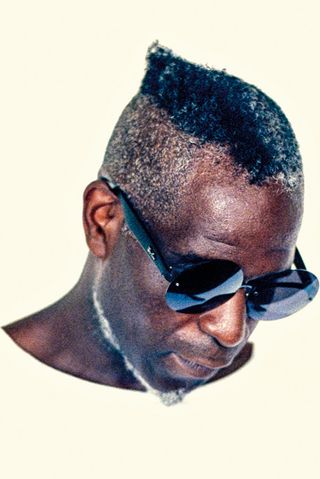
It still sounds quite… produced. Seriously lush and rather spacey in parts.
"I had access to a Behringer desk and an API desk, just to add a bit of warmth, but most of the reverbs and delays are from the various apps. Like in Figure - you've only got the three basic sounds, but once you start messing with delays and filters and what have you, you can really add space and movement.
"You've got reverb in GarageBand. Pretty basic, but it works. I've never been one of those producers that knows all the numbers when it comes to reverb, EQ and compression. For me, it's about instinct. I don't know if what I did with the reverb was technically 'right', but it sounded OK to me. Isn't that what matters?"
All sampling done on iPad/iPhone?
"Yep! I'm sure that if you're one of those people who builds up songs from loads of different bits of vintage vinyl, it might have been awkward, but I don't go in for that. My samples are things I hear when I'm walking around town or watching TV… abstract sounds.
"I don't like my samples to have too much structure, because they tend to lead you down a particular path. If I start a song with a certain drum loop, it's going to dictate certain aspects of the song. I don't want that. I want the music to come from me."
C'mon… You must have at least been tempted to record the vocals in Logic, right?
"Tempted, yes, but I know how my vocals work and I know what sounds good. Like I said before, when it comes to vocals, there is this crazy urge to make everything perfect. I've been in studios with the best mics and the best hardware and the best engineers, and the vocals end up sounding kinda flat and lifeless.
"I don't want to get too much into the political/cultural thing. My music isn't about that. It's music… It's not a manifesto."
"My voice is quite smooth and clear… I think it needs a bit of roughness to bring out the best in it. It gives the vocal context and width and humanity. It's a vocal! It's meant to sound like a real person."
Lyrically, this album is a bit more political. Is that a fair comment?
"I think so. In the past, my music tended to be more about being in the moment and not worrying too much about any kind of 'message'. I suppose you'd call it 'space cake music' [laughs]. This time, I was looking at some of the stuff that's happening around the world, and it was difficult not to let it come out in the songs. It wasn't a deliberate thing; it was just there.
"There are a lot of those old London influences in this album, too. I used to hang out at this club in New Cross called the Flim Flam. I loved going down there cos you had no idea what you were going to hear - the music was right across the board, as was the audience. You had skinheads, punks, two tone kids, soul boys, beer boys, new romantics and everybody else all hanging out together with absolutely no hassle. We used to do that so well in the UK. Get everybody together in a room and let's have a good time.
"I don't want to get too much into the political/cultural thing. My music isn't about that. It's music… It's not a manifesto."
Looking back, are you pleased you opted for an app-based approach? Would you do it again?
"I loved it! It gives you so much freedom because you're not worrying about all the fluff. You're not worrying about, 'Oh, I need more sample packs. I need this new synth'. You have these tools and you've got to make it work.
"Would I do it again? I don't like setting rules. I'm not going to say, 'I will only ever use apps from now on'. If you set rules, you just limit yourself. But I will say that apps now make up a huge part of my... I guess you'd still call it a 'studio'. All these people that say, 'Apps are just toys.' Rubbish! They don't know what they're talking about. If you think these are toys, then you're not a real musician.
"You want to suffer for your art? You want to struggle with some vintage keyboard that keeps breaking down and going out of tune? You want to stick it all on tape? Fine. I love music that's made that way, but, personally, I never want my tools to get in the way of a good idea.
"Working with apps was… Man, it was all about the music!"


Computer Music magazine is the world’s best selling publication dedicated solely to making great music with your Mac or PC computer. Each issue it brings its lucky readers the best in cutting-edge tutorials, need-to-know, expert software reviews and even all the tools you actually need to make great music today, courtesy of our legendary CM Plugin Suite.

"Reggae is more freeform than the blues. But more important, reggae is for everyone": Bob Marley and the Wailers' Catch a Fire, track-by-track

“Part of a beautiful American tradition”: A music theory expert explains the country roots of Beyoncé’s Texas Hold ‘Em, and why it also owes a debt to the blues

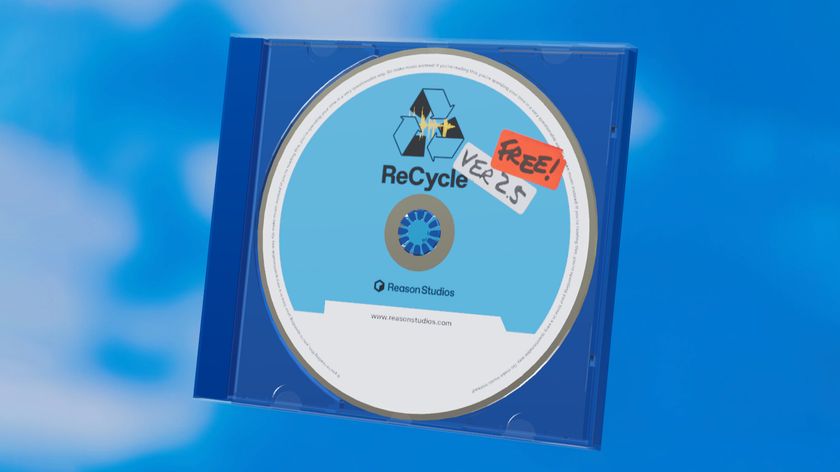
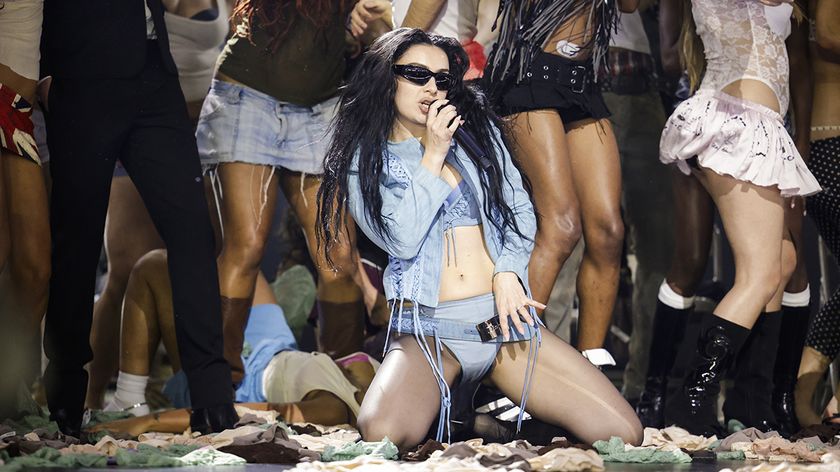
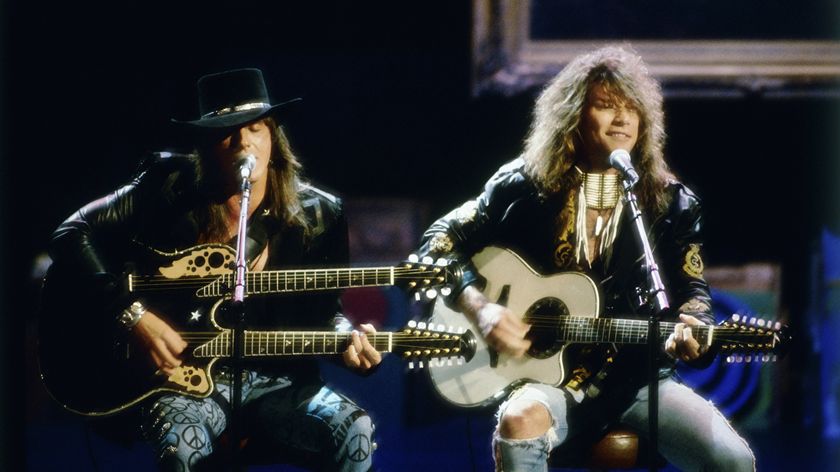
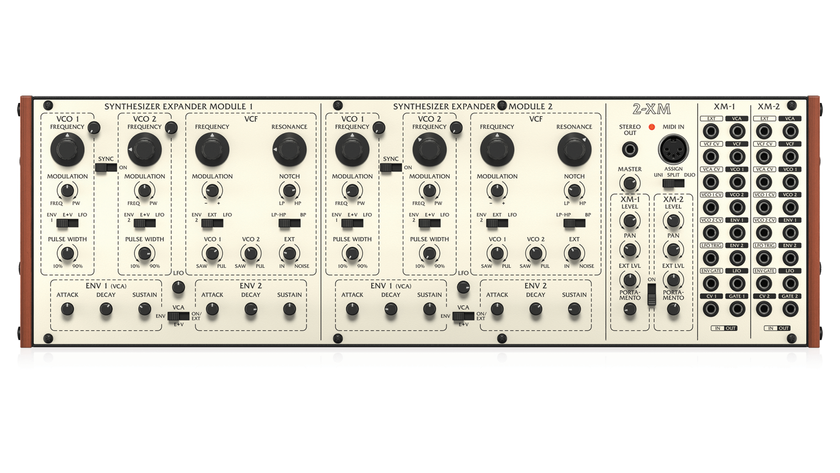
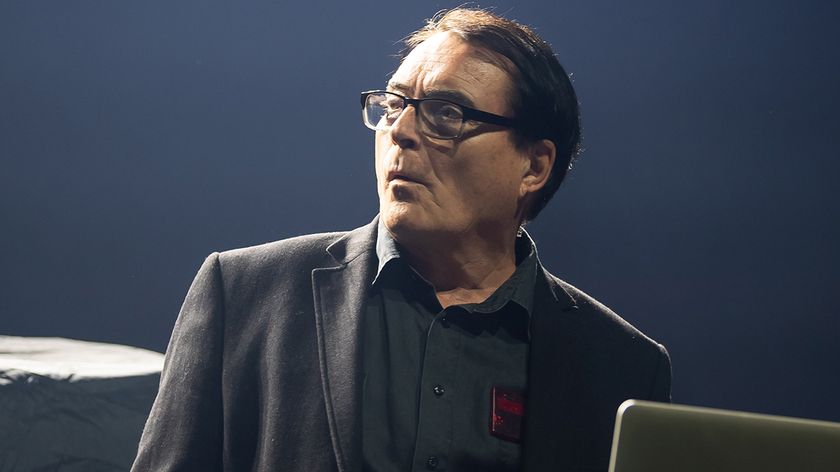
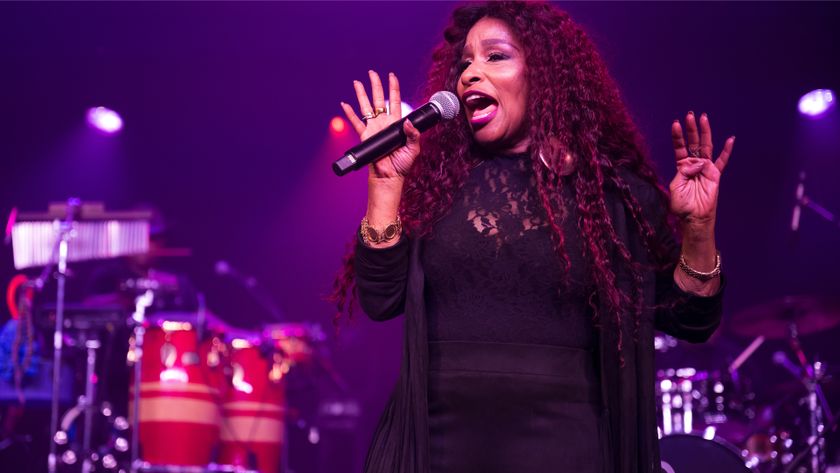
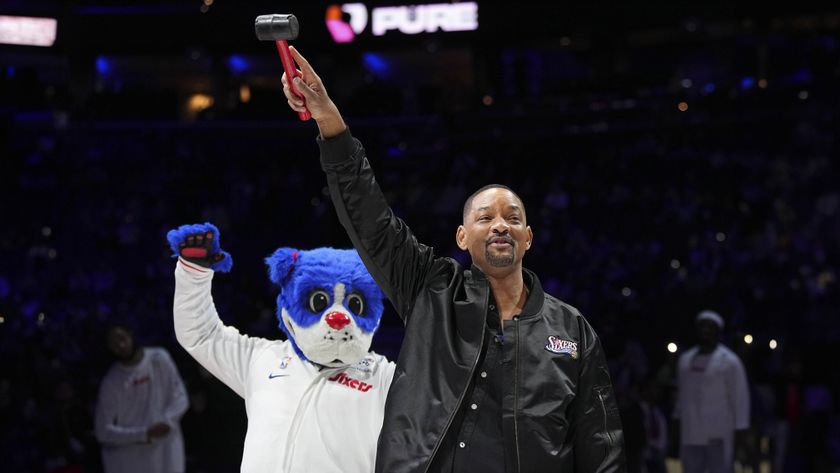


![Chris Hayes [left] wears a purple checked shirt and plays his 1957 Stratocaster in the studio; Michael J. Fox tears it up onstage as Marty McFly in the 1985 blockbuster Back To The Future.](https://cdn.mos.cms.futurecdn.net/nWZUSbFAwA6EqQdruLmXXh-840-80.jpg)